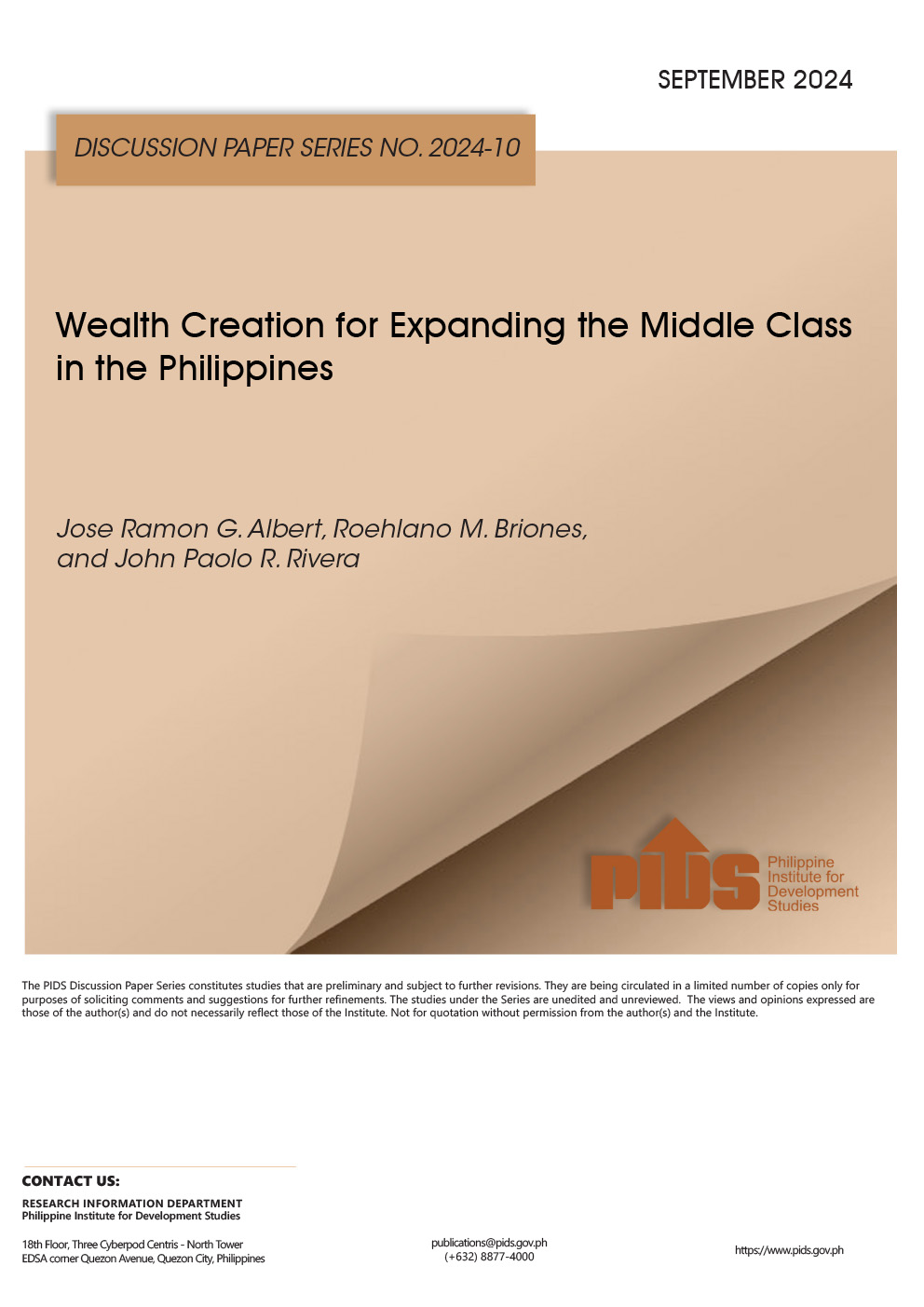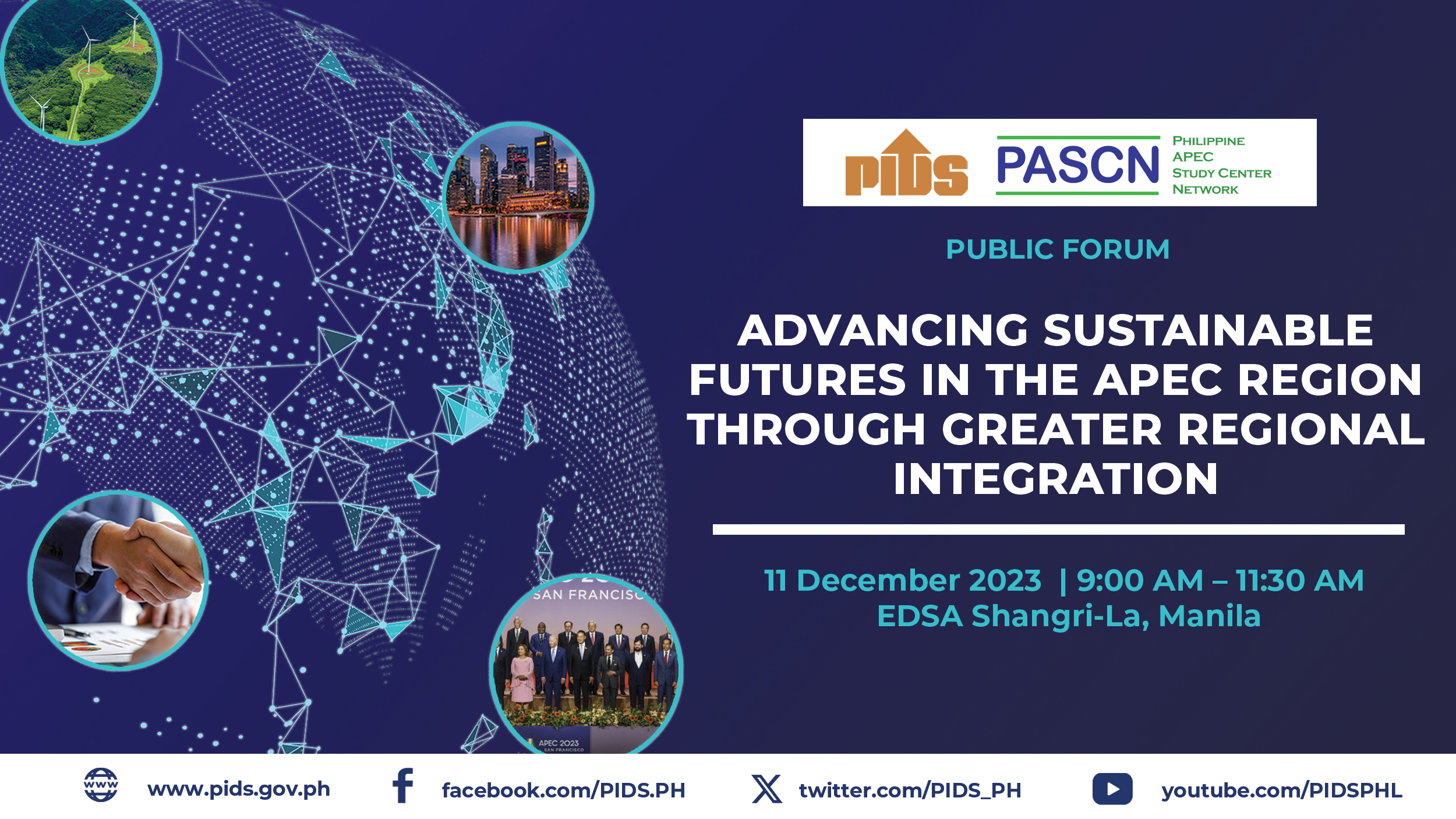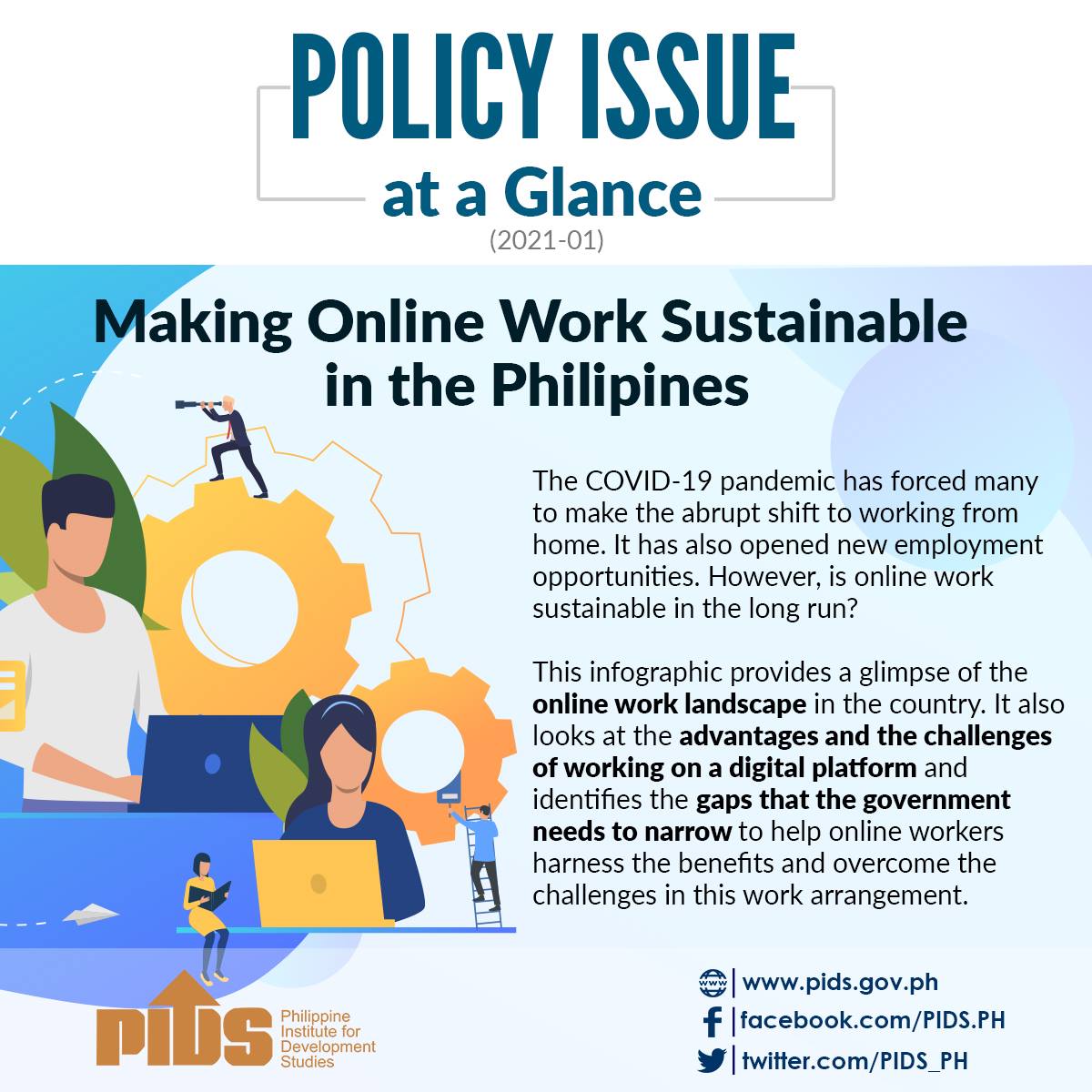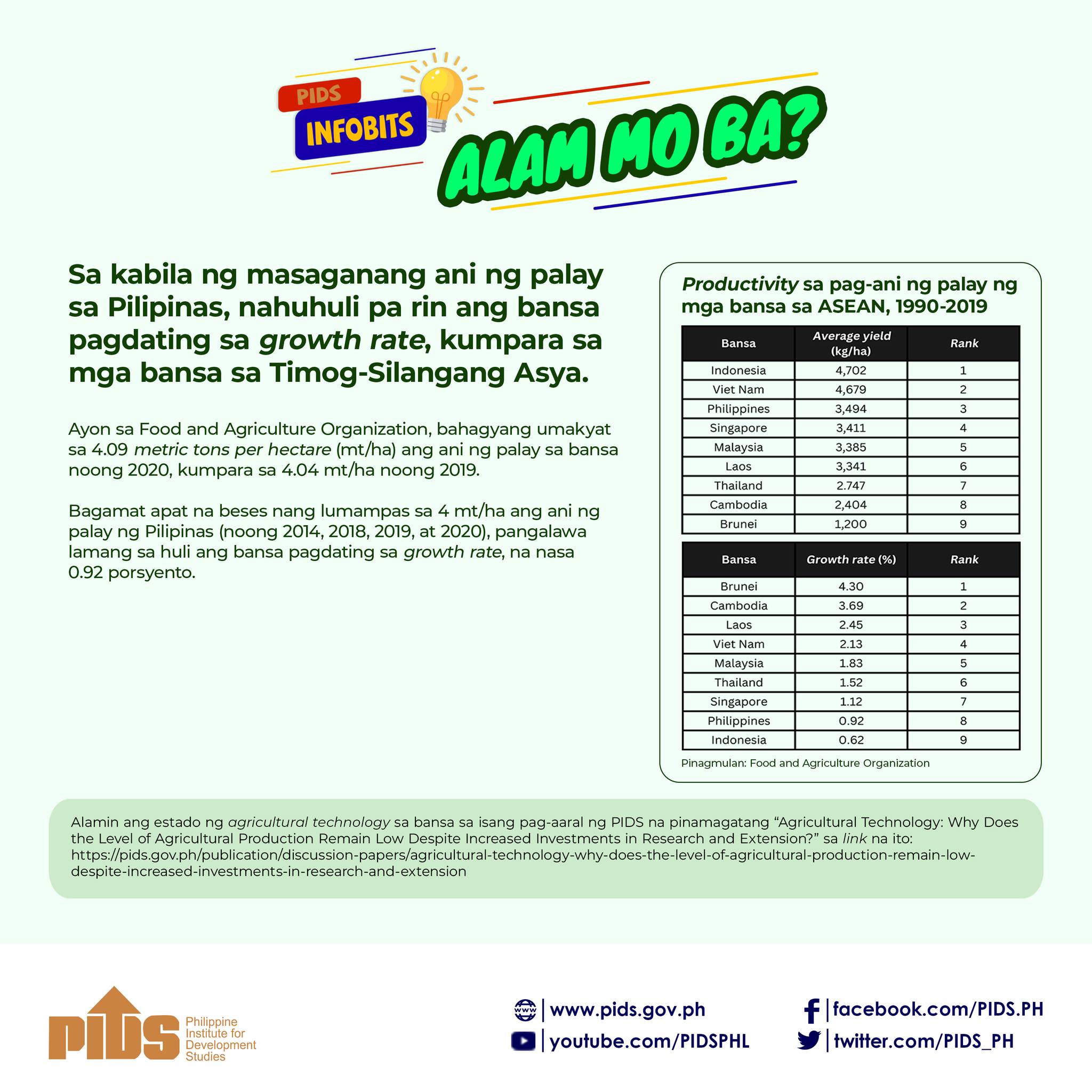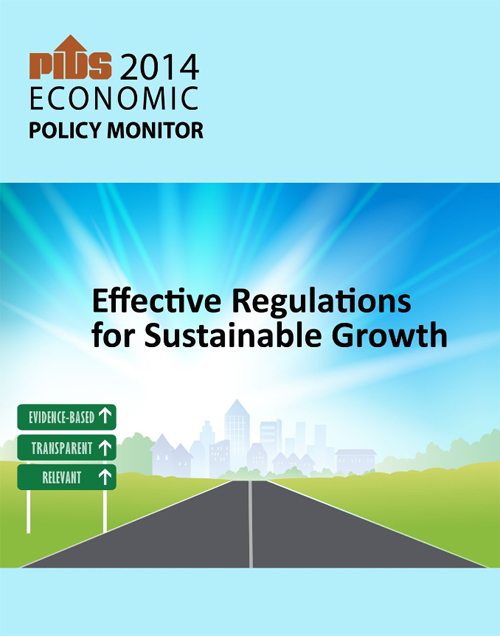
The 13th Development Policy Research Month highlights the importance of regulatory coherence and quality to realize rapid, sustainable, and inclusive growth. For the Philippines to take advantage of increased trade and investment under the ASEAN integration, there is a need to address the factors that continue to bring down its competitiveness and that undermine efforts to achieve greater social inclusiveness. Regulatory burdens are one of those factors. They restrain competition, productivity, and innovation, which can snowball into causing a drop in business confidence, neglect of general welfare, build-up of corruption, and, ultimately, loss of public faith in governance.
The theme chapter of the 2014 Economic Policy Monitor, an annual publication of the Philippine Institute for Development Studies (PIDS), explains the relevance of this year’s DPRM theme. The chapter’s author, PIDS President Gilbert Llanto, examines the case for developing a sound and efficient regulatory management system (RMS) for the country. An RMS is the best step toward reducing regulatory burdens and improving the quality of regulations. The Philippines has a system that contains some of the basic elements of an RMS, but these do not represent a coherent and coordinated system nor are these elements regularly undertaken. The government has taken steps to fill the gaps in the system, but this is not enough. A commitment to reforms despite changes in political leadership and a mindset for continual improvement and innovation are a must.
Know what other PIDS studies have to say about regulatory reforms. For other related studies, visit the SocioEconomic Research Portal for the Philippines. Simply type “regulatory structure”, “regulatory framework”, and other related keywords in the Search box.
- Economic Policy Monitor 2014: Effective Regulations for Sustainable Growth
- Toward an Effective Regulatory Management System: Philippines
- Regulatory Policies and Reforms in the Power and Downstream Oil Industries
- Managing International Labor Migration: The Philippine Experience
- The Pathway to ASEAN Energy Market Integration
- Infrastructure Development: Experience and Policy Options for the Future
- Competition Policy and Regulation in Ports and Shipping
- A Competition Policy and Efficient Regulatory Framework for the Port Sector: Getting It Unberthed
- Competition Policy and Regulation in Power and Telecommunications
- Developing Principles for the Regulation of Microinsurance (Philippine Case Study)

